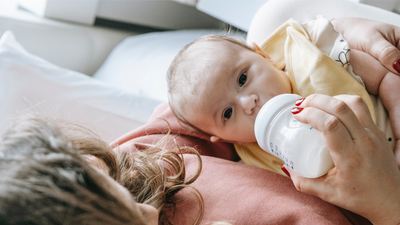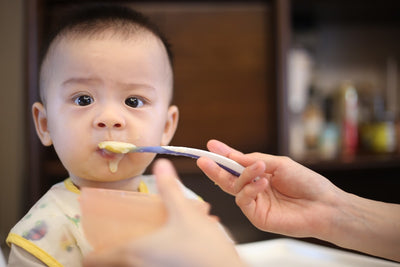Can Prenatal Vitamins Cause More Harm than Good?
Can Prenatal Vitamins Cause More Harm than Good?
by Katie Black
Pregnant women are often told by doctors and others concerned for their health to make sure to take their vitamins. But it is not so simple as choosing a vitamin marked as prenatal. The label can be deceiving and what the bottle contains may be downright dangerous.
As part of a 2018 investigative report by Lisa Fletcher with ABC7 news, the data of 220 over-the-counter prenatal vitamins was shown to Dr. Stephanie Canale, founder of Lactation Lab. What they found was disturbing:
- Only 6% did not contain Arsenic
- Only 7% did not contain Cadmium
- Only 4% did not have Lead
- Only 23% did not have Mercury
- Only 2% of brands did not contain all 4 heavy metals
- 49% tested positive for pesticides
- Only 10% were more than 90% pure
The alarming truth is that the vitamins expectant mothers are reaching for likely contain heavy metals. Pregnant women are pressured to take their vitamins in order to ensure a healthy gestation, but what they’re not told is that there’s very little regulation over these vitamins and they could potentially be very damaging.
While the CDC, World Health Organization and FDA don’t agree on the exact limits that should be put on exposure to heavy metals, they all agree that the less exposure the better. In the womb, infants are especially vulnerable to anything toxic they are exposed to. Lead, for example, is known to cross the placenta and collect in tissue harming development, especially in the brain.
One possible reason heavy metals are present in these vitamins is due to how the ingredients are sourced. Some companies source their raw materials from overseas countries with less strict policies for water, soil and air quality. The companies then manufacture the final product in the US leading people to believe that they are safe for consumption.
One peer reviewed study cited in the report found that the more expensive vitamins did not correlate with less toxicity and vice versa (although the most expensive vitamin included in the study turned out to be the most toxic). Vitamins labeled as organic, non-GMO or free of pesticides were also not correlated with less toxicity.
Currently, the FDA does not review every vitamin that goes to market - they only investigate if they have a reason to believe there is a problem. These supplements need way more oversight and regulation. We also need transparency from companies about what exactly is in their products, and where and how the ingredients are obtained.
Sources:
Other helpful links:
https://www.nytimes.com/2021/02/03/parenting/pregnancy/prenatal-vitamins-regulation-fda.html
https://www.sciencedirect.com/science/article/pii/S2214750018301215
https://labdoor.com/rankings/prenatal-vitamins
https://www.consumerlab.com/reviews/multivitamin-review-comparisons/multivitamins/
https://info.nsf.org/Certified/Dietary/Listings.asp?StandardExt=&TradeName=prenatal&CompanyName=&PlantCountry=&ProductType=&search=Search
https://apps.who.int/iris/bitstream/handle/10665/250796/9789241549912-eng.pdf?sequence=1












